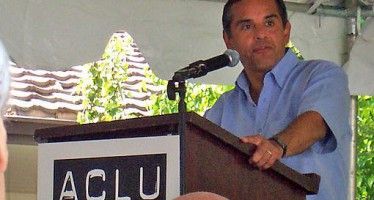CA assisted suicide bill advances
 With doctors’ groups divided, legislation that would authorize assisted suicide cleared a key hurdle in Sacramento, triggering a fresh round of controversy.
With doctors’ groups divided, legislation that would authorize assisted suicide cleared a key hurdle in Sacramento, triggering a fresh round of controversy.
Senate Bill 128, the so-called “End of Life Option Act,” was introduced earlier this year by state Sens. Lois Wolk, D-Davis, and Bill Monning, D-Carmel. Modeled on an Oregon law governing physician-assisted suicide, SB128 set out a series of conditions that would legalize but limit the practice.
Retooled after it initially stalled, the bill has now passed through the state Senate appropriations committee. “Backers of the assisted suicide proposal made some changes to the bill to gain more support after it initially met with strong opposition from hospitals, doctors, anti-abortion organizations and disability rights groups,” Reuters reported. “As currently written, it allows hospitals and medical providers to refuse to comply with a patient’s wish for assisted suicide, and also makes it illegal to pressure or manipulate people into ending their lives.”
The bill’s final language required that medication be self-administered by a mentally competent patient diagnosed by two physicians with six months or less to live, according to California Healthline.
Deepening controversy
One key to the bill’s committee clearance, Reuters noted, was the California Medical Association, which “still opposes the concept of assisted suicide” but “removed its formal opposition to the bill.”
Yet this attempt at a compromise position has left many palliative doctors unsatisfied. Among those supportive of assisted suicide, some have argued that all patients should have a right to avoid discomfort at the end of life — an objective even diligent palliative care cannot always meet.
Others, arguing against the practice, insisted that affirmatively ending patients’ lives was an unnecessary and crude response to the discomfort of death and dying. Newport Beach doctor Vincent Nguyen told Southern California Public Radio that patients’ typical fears — “about pain, losing control or being a burden on family — can be managed with spiritual and emotional counseling and pain medications, all of which are part of the palliative care toolkit.”
Dr. Ira Byock, a palliative care physician in Torrance, went further. Contrary to their wishes, he warned, the chronically ill often “spend their last weeks in intensive care units, hooked up to life support,” according to SCPR. “To address this problem, he says that all doctors — from medical students to veteran practitioners — should be required to have training in end of life conversations.”
A moral shift
As SB128 came one step closer to becoming law, analysts began a closer look at how much popular support the bill might attract. As has long been the case on high-profile and hot-button issues, California has been seen as a bellwether in the struggle over how the law treats those who want to die.
Despite gathering momentum to legalize assisted suicide, public opinion has remained split. But in-state and nationwide, data suggested an ongoing shift in mores that benefits how SB128 is perceived. “Nearly seven in 10 Americans (68 percent) say doctors should be legally allowed to assist terminally ill patients in committing suicide, up 10 percentage points from last year,” Gallup reported. “More broadly, support for euthanasia has risen nearly 20 points in the last two years and stands at the highest level in more than a decade.”
The shift has left opponents pivoting to warn that even relatively narrow authorizations of the practice would lead to ever-broader accommodations down the road. “In the Netherlands, after many years, legal assisted suicide for the dying has evolved into death on demand, with six out of 10 doctors admitting to killing a patient who was simply ‘tired of living,'” wrote Jacqueline Harvey of Euthanasia Prevention International at National Review. “California is approaching that slippery slope.”
Related Articles
State funds dry cleaners’ shift to CO2
The California Energy Commission’s Public Interest Energy Research Program has produced a dry cleaning machine that uses CO2. The carbon-based cleaning
Los Angeles books higher hotel minimum wage
If critics are right, room service in Los Angeles hotels could descend to that of the Bates Motel. Yesterday the City
Villaraigosa will not pursue 2016 Senate seat
Former Los Angeles Mayor Antonio Villaraigosa announced he won’t challenge state Attorney General Kamala Harris for the U.S. Senate seat




